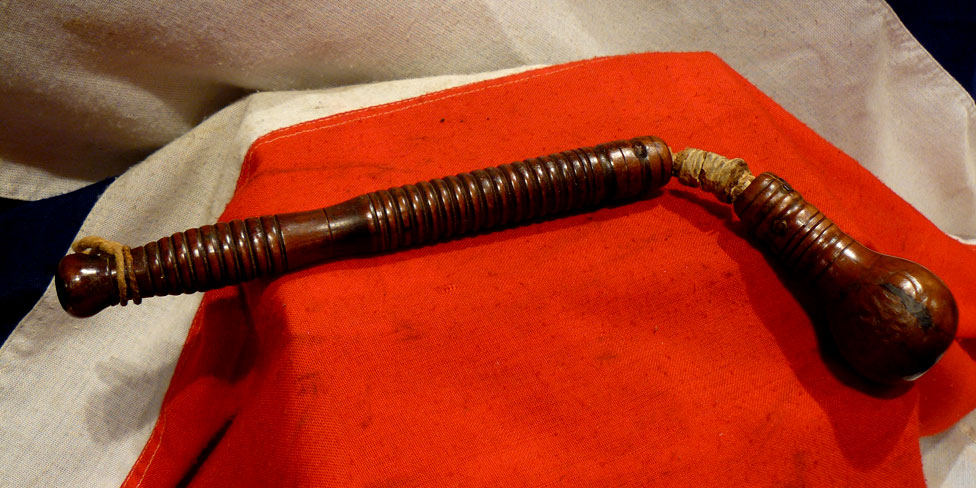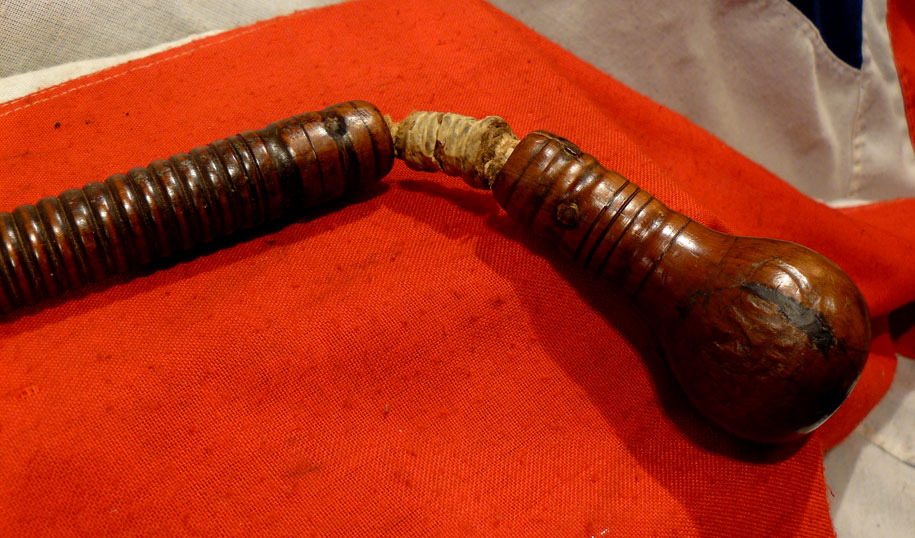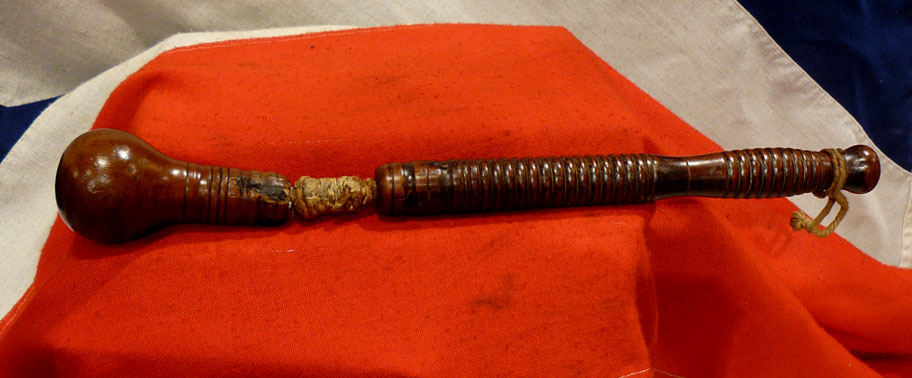A Very Good Late Georgian Royal Navy, ‘Press-Gang’ Boatswain’s Persuader Cosh. Also For Use On Boarding Party Raids.
With a beautifully patinated turned walnut handle, rope linkage and turned walnut knob top. These scarce clubs are most attractive and extremely effective. The type used on press gangs and boarding raids by the boatswain. The persuader-cosh continued to be useful in all manner of areas right into and through the Victorian era, both on land and Sea. The Impress Service (colloquially called the "press-gang") was formed to force sailors to serve on naval vessels. There was no concept of "joining the navy" as a fixed career-path for non-officers at the time, since seamen remained attached to a ship only for the duration of its commission. They were encouraged to stay in the Navy after the commission but could leave to seek other employment when the ship was paid off. Impressment relied on the legal power of the King to call men to military service, as well as to recruit volunteers (who were paid a bounty upon joining, unlike pressed men). Seamen were not covered by Magna Carta and "failure to allow oneself to be pressed" was punishable by hanging, although the punishment became less severe over time.
In Elizabethan times a statute regulated impressment as a form of recruitment, and with the introduction of the Vagabonds Act in 1597 men of disrepute (vagrants) found themselves drafted into service. In 1703 an act passed limiting the impressment of men under 18 years of age to those who were not apprenticed. A further act in 1740 raised the maximum age to 55. Although no foreigner could normally be pressed, they lost their protection if they married a British woman or had worked on a British merchant ship for two years. Some governments, including Britain, issued "protections" against impressment which protected men had to carry on their person at all times; but in times of crisis the Admiralty would order a "hot press", which meant that no-one remained exempt.
The Royal Navy also impressed seamen from inbound British merchant ships at sea, though this was done by individual warships, rather than by the Impress Service. Impressment, particularly press gangs, became consistently unpopular with the British public (as well as in the American colonies), and local officials often acted against them, to the point of imprisoning officers from the Impress Service or opposing them by force of arms. The cord linkage is present but now a little frayed at the handle join
Code: 17644




